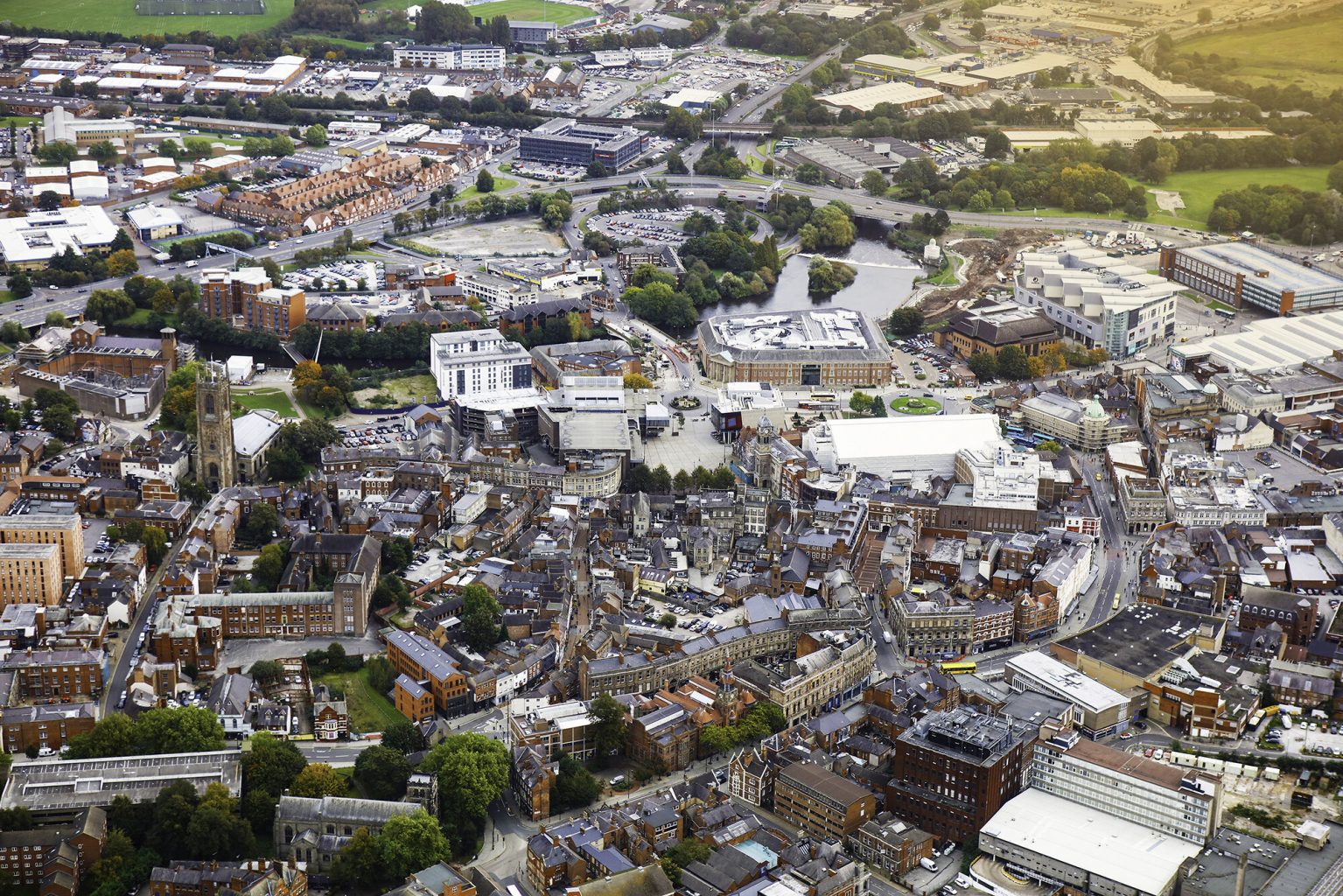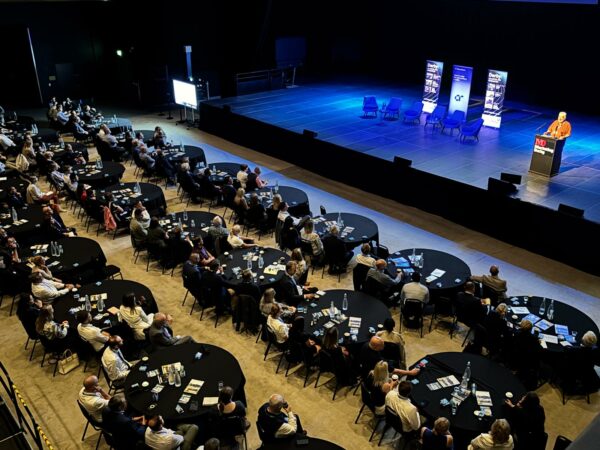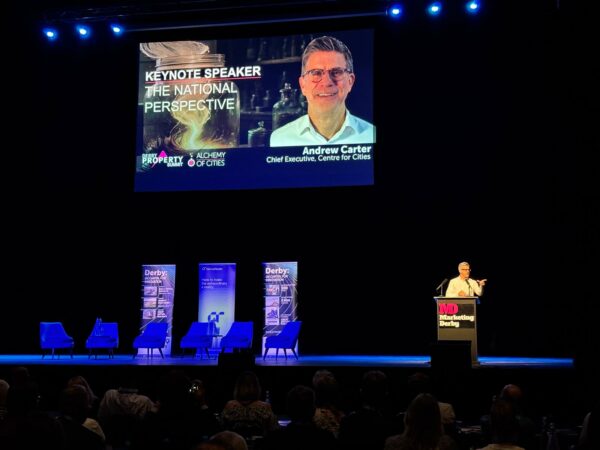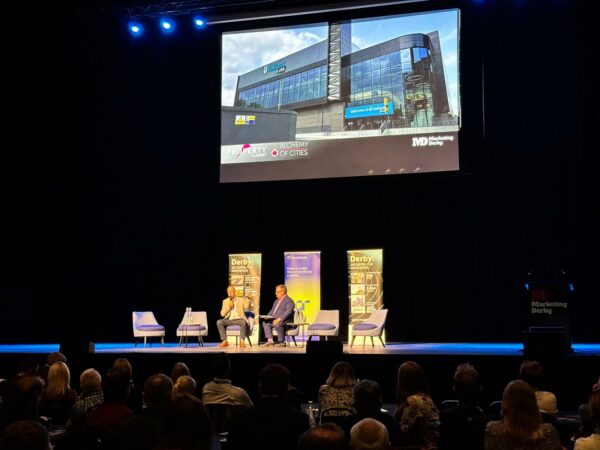Latest News | 21 June 2022
A message of hope in challenging times

“We have entered a new geo-political era and the war in Ukraine is a wake-up call, a moment when we lose our naivety”.
This was the stark assessment of the urbane Prime Minister of Belgium, Alexander De Croo, at the recent Urban Land Institute conference which I recently attended in Brussels.
The event brings together policy makers and practitioners in the fields of real estate and investment, providing a platform for horizon scanning, exchange of ideas and responses.
One speaker, Tina Fordham, who provides strategic insight to corporations and governments (including our own Ministry of Defence), took it a stage further by declaring that the most calm and peaceful period in history – that of between 1989 (the fall of the Berlin Wall and Iron Curtain) and 2008 (the fall of Lehman Brothers and the world’s financial system) – as being an outlier and should not be used as an indicator.
Her message appeared to be that ‘I hope you enjoyed that period as it’s unlikely to be repeated’.
Brace yourself, as if the Covid pandemic, the Russian invasion of Ukraine, the energy and cost of living crisis, are not enough to cause worry, then sitting in the wings, and still waiting for appropriate attention, is the very real threat provided by climate change.
All a bit heavy I know, but nevertheless, an unavoidable paradigm shift – in all things economic and social – ran right through all the expert contributions.
The times, it seems, they really are a changin’.
However, there is hope – from the Belgium PM no less – which I will share later.

First, let me outline some of the challenges and responses outlined, starting with the future of a force that has driven economic growth for at least the past 50 years, that of globalisation.
Like it or not, we have all been players and customers in the globalisation of cash, technology, mobility and economy.
Just think of the car you drive, the holiday you took, the shoes you bought, the phone you use, or even your most recent (and most likely fraught) call centre experience.
Globalisation has become increasingly core to our life experience, both personally and professionally.
Making sense of this economically is easy – just think of the many businesses operating out of Derby and Derbyshire and their international reach.
Japan-based Toyota, the world’s largest car company, remains one of the UK’s largest ever inward investments. French-based Alstom bought out Canadian-based Bombardier and now runs their largest factory in Derby. Kuwait-based Cale Street bought the Derbion shopping mall which attracts 21 million people each year.
These represent a vast amount of international capital investment inbound to Derby but the same applies outbound.
Fly anywhere in the world and you will see the emblem of Rolls-Royce on the wings of your aircraft. Pop into a store in Tokyo and see iconic John Smedley products for sale, similar for Denby Pottery in South Korea and Royal Crown Derby in the Middle east. In China, you can see the world’s largest clock made by Smith of Derby. And so on.
The fact is that we have become used to a world with increasingly frictionless activity in international trade and investment. Tens of thousands of jobs in our area alone have been created on the back of this.

It is for that reason that we should keep an eye on trends that threaten to unbalance this, not least any hint of a global recession.
First, there is no doubt that globalisation is slowing down.
It’s only a little over 2-years since the World Health Organisation declared Coronavirus a ‘global pandemic’ and contact of any sort simply stopped as countries went into lockdown. Almost all tangible international travel, business and personal contact melted away as we became confined to our homes.
Today, that legacy is being reflected in broken or slowed supply chains and shortages of goods leading to cost increases, inflation and review of pipeline investment commitments.
It is worth reminding that the pandemic is not yet over. As lockdowns continue to roll across the world – not least in China – and companies adopt ESG (Environmental, Social and Governance) principles into their plans, concepts such as near-shoring are being looked at very seriously.
The terrible war in Ukraine has acted to make the position worse and we all wait to see how players such as China – a country that hates uncertainty and remains cautious of Russia’s decline – decides to react.
History tells us that in such periods whole communities are prone to cynicism and populism, fed by fake news and so develop – there is a word for this – the infodemic, a state of mind essentially susceptible to quack pot theories.
A recent study analysed countries most at risk to infodemic belief with the top three being Russia, France and the United States. Astonishingly, the key tracker control question was simply ‘do you believe in the moon landings?’
The impact on mental health of all this change is real, as apparently 70% of Generation Z (the generation born between 1997 and 2021) report bouts of anxiety.
So, you might ask, how does this play out on a more local level?

The obvious answer is that economies such as Derby and Derbyshire are well integrated into the global milieu as listed above.
There is, though, a more personal perspective to this, in the sense that disturbance to our lives brought on by pandemic, war and cost of living is very real, creating uncertainty, anxiety and even fatigue for many.
Our style of living has been effectively turned inside out and we are only just beginning to do what humans are so good at, and that is adapt to new circumstances.
The ingenuity of people and our essential goodwill was at the heart of the De Croos message of hope.
His belief is that the innovation of the private sector and scale of the public sector can help us navigate these challenges and he quoted the Covid vaccine programme as being the perfect manifestation of this.
The most obvious change for many of us is the revolution in working practices with the (forced) introduction of working from home now evolving into a flexible hybrid model.
This impacts so many aspects of life, not least the vibrancy of town and city centres and ability to live far away from the office, leading to increased investments in the suburbs.
It’s times like these when we need leadership with the ‘right stuff’ and many argue that this is best achieved at city – as opposed to national – level.
Citizens feel greater affinity and identity to their place and so nation states must continue to accelerate programmes of policy and financial decentralisation, genuinely empowering communities.
Cities have proved resilient to many revolutions and the consensus is that we will once again redesign and repurpose our places for the common good.
After all, it was Aristotle no less who said that ‘people move to cities to live, they stay in cities to live the good life.’
Author: John Forking MBE, managing director of Marketing Derby


